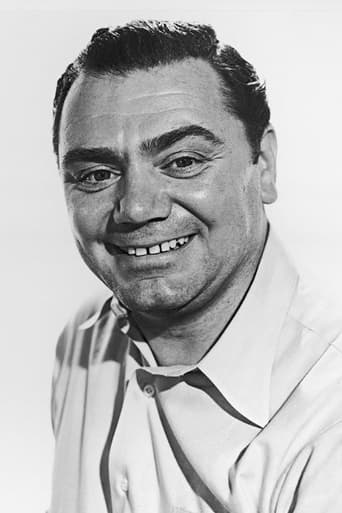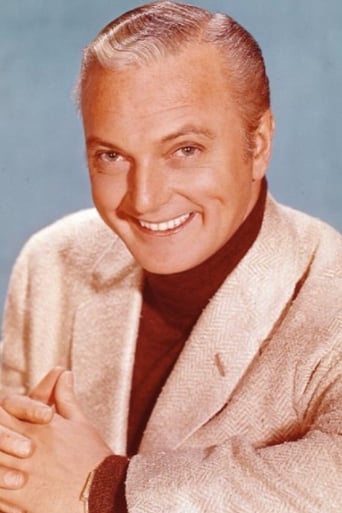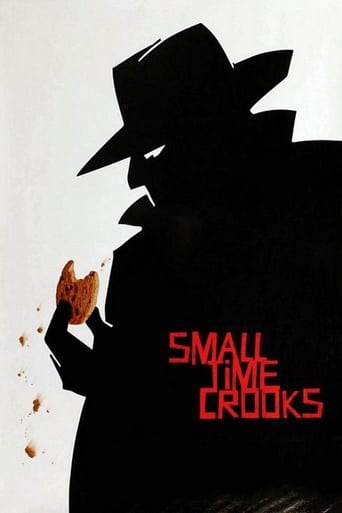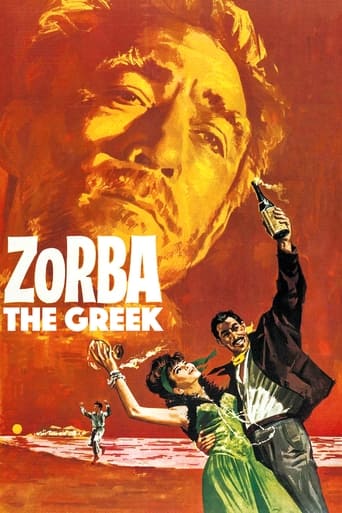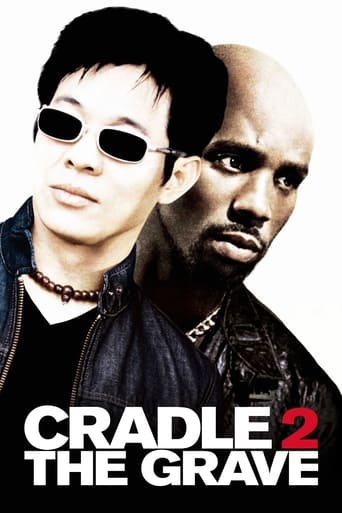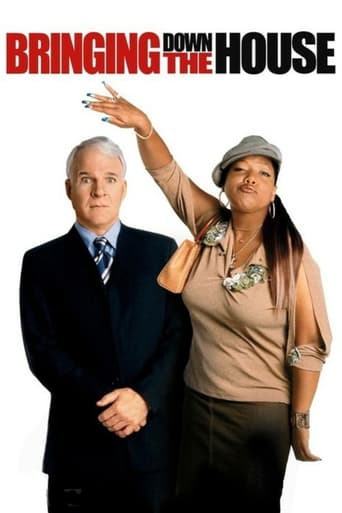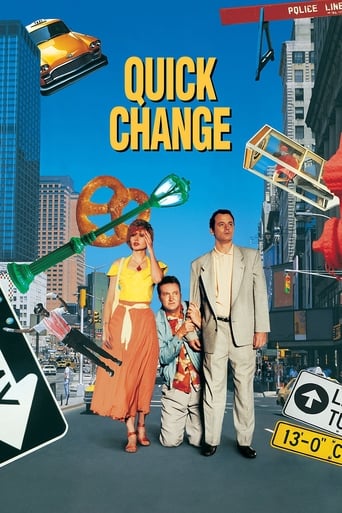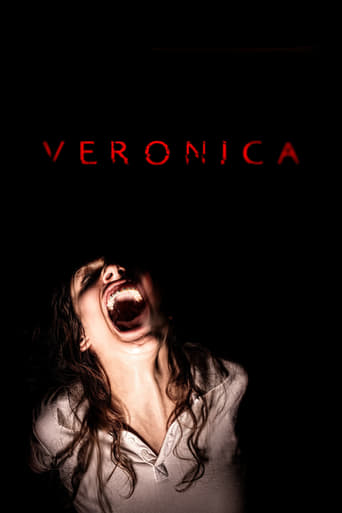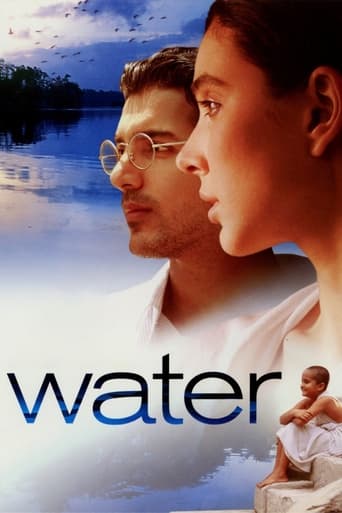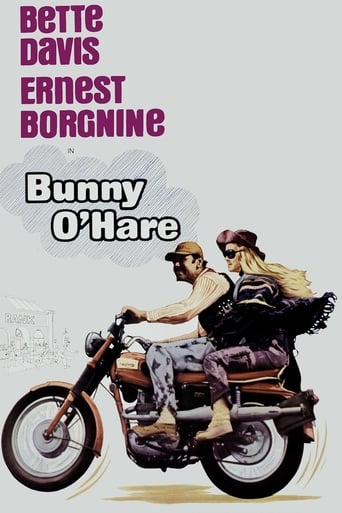
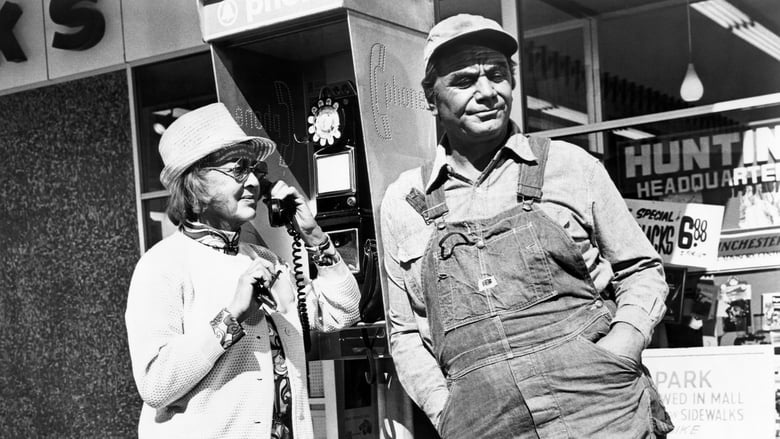
Bunny O'Hare (1971)
Bette Davis handles the title role in this highly offbeat crime comedy about two aging hippies who elect to rob a bank to restore Bunny O'Hare's financial affairs after she's been unjustly evicted and rendered homeless. When that heist ends up paying off, rather than take off for the border, Bunny opts for a life of crime with her new partner, Bill Green, played by fellow Oscar-winner Ernest Borgnine.
Watch Trailer
Cast
Similar titles

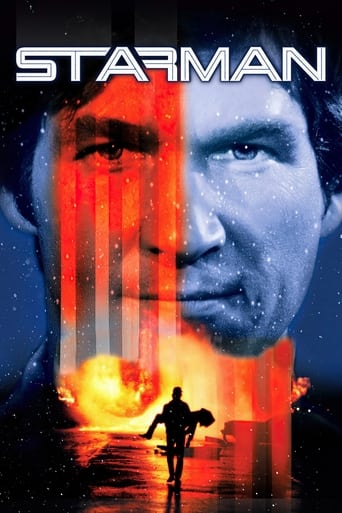
Reviews
i must have seen a different film!!
Film Perfection
it is finally so absorbing because it plays like a lyrical road odyssey that’s also a detective story.
This is an astonishing documentary that will wring your heart while it bends your mind
Bette Davis made a few stinkers when she was no longer getting good roles, "Bunny O'Hare" will bring tears to Davis fans who recall her great performances in "All About Eve" for example and so many more. The plot is improbable as well as illogical, which would be OK in a farcical comedy, not so much in this low budget mess. The two principals are OK, they didn't write the screenplay, but the characters played by Jack Palance and the bit players, were drawn from bad stereotypes, Archie Bunker style, as well as starkly amateurish. I thought for a moment those who played the "Hippies", cops, and bank employees were right out of the 5th grade play. Maybe there was nothing left after Davis and Borgnine were hired. Aside from the just awful disaster films from the same decade, "Bunny" is as bad as it gets. If you get through this film once, you won't be back for a second helping.
A trite and severely disheartening comedy from '71, 'Bunny O' Hare' stars two tired actors, Bette Davis and Borgnine, who was but a character actor, mastering one routine; and as a redneck melodrama about the misfortunes, loss and misery of the old age, 'Bunny O'Hare' is a rather cheap, unpleasant and essentially vulgar sentimental exploitation, and also, and more gravely and saddening, of geriatric exploitation, and it shows, together with countless other useless movies, that in the '70s the American cinema had already became a mindless business. It is also true this kind of movie goes right against my very notion of cinema, either as art or as _divertissement, so I'm in no position to judge it fairly.We are supposed to laugh at Bette Davis' physical training for the bank robbery. Two old farts pass as two hippies. The satire is uninteresting (Greeley and the hippies' counterculture), the senile romance (B. Davis and Borgnine) is lousy.
This film belongs to an enigmatic category I refer to as Extinct. No VHS or DVD release. Only a TV broadcast now and then. It deserves more, as do most extinct films: they should all be available for streaming or download on the web.After seeing it yesterday on THIS, the new CBS digital broadcast sub-channel, I found Delaney's performance to be the highlight. Her ambivalent, playful acquiescence must epitomize the fate of countless intelligent women, even to this day. I'm no feminist, but I can empathize. She's clearly the superior cop. But the best she can do is gently nudge her male boss in the right direction. And when he errs, she can't correct him, lest he lose face. Civilization would probably be a hundred years further along by now if we humans weren't so rigidly patriarchal. Too many great women have been relegated to the sidelines. Including Delaney, whose film career apparently ended here.Davis and Borgnine, meanwhile, help us understand the unfortunate issue of exploitative adult children. They've grown up, but they don't want to be independent. They happily parasitize their aging parents, who in Bette Davis' case, actually risk life and limb to procure infusions of cash in response to concocted, irresponsible excuses. Her progeny's utter lack of conscience was bewildering to me. I shudder to think how many elderly grandparents sympathize with Bunny's futile situation. There are probably millions of real-life parent-parasites in the world, preying upon their progenitors' unconditional affections.This is a multifaceted film. Thanks to its stars, it's engaging too.
That, of course, is a reference to the first of two films which they did, where Bette spoke with an accent that Meryl Streep would never envy. This second film together, made 15 years after the more well remembered drama, is an obscure action comedy which didn't get enough attention to even rank a nice ad in the New York Times. (Investigating this film, I was stunned to find an ad the size of my thumb nail in microfilmed copies at my local library). Based upon the fact that the two of them were both Oscar Winners and that co-star Jack Cassidy was a popular Broadway performer, this obviously was way even below "B" grade to warrant such lack of publicity. Reviews, of course, were no better. Bette is seen as the opening credits closed pleading with the bank not to foreclose on her home. Of course, she can't get a word in edgewise when she contacts her daughter (Reva Rose, who had just come off of playing Lucy in Off-Broadway's "Your a Good Man Charlie Brown") since the phone man disconnects her. When she calls back a second time, the cat is eating her son-in- law's breakfast with the guy sitting right there paying no attention, and the daughter has to rush off. Then, as she is finally getting around to telling her daughter what is going on, a tractor plows the house down. Ernest Borgnine, as the plummer taking out the toilet, offers her a ride to wherever she needs to go, and before he knows it, she has basically become his guest. He tries to get rid of her, but every time he makes an attempt, she some how manages to get back in his trailer. Thanks to a bumpy ride in the back of the trailer, she learns of his past as a bank robber wanted for escaping from prison, and subtly blackmails him into training her on the art of robbing banks. In a rather funny sequence, we see Bette going through all sorts of indignities (running in unglamorous sweats; climbing on monkey bars; and not at all looking like the actress who played all those feisty Warner Brothers heroines in the 30's and 40's.) Even Margo Channing would have never allowed herself to be profiled this way! Noticing a group of hippies protesting the Bank of New Mexico, Davis and Borgnine use their looks to disguise themselves. Nobody seems to notice the lines around Davis's mouth which make it appear she is older, so the local police are on the look-out for young hippies. A funny note about Reva Rose's looks as Bette's daughter; She was a strange choice considering that Ms. Rose is obviously Jewish, and Ms. Davis was obviously not. It's one of those howlingly funny details not considered that make "Bunny O'Hare" comically bad. While John Astin as her son is much more believable (Gomez Addams as Bette's son---how appropriate!), his one-dimensional portrayal seems taken from Dick Shawn's portrayal of Ethel Merman's stupid son in "It's a Mad, Mad, Mad, Mad World". A string of scantily clad women are on and off as the latest woman in his life, making Astin a cad the writers obviously used to make the point of how children use and depend on their parents too much, no matter what they are going through themselves. Then, there is Jack Cassidy's oh-so-stupid police commissioner. His opening scene giving a speech to his underlings is oh-so-badly written; Cassidy obviously was by this time becoming a caricatured of his off- screen persona, much like John Barrymore many years before. And when he openly sexually harasses the seemingly willing Joan Delaney (as the younger new female cop assigned to help him capture Davis and Borgnine), he just takes the character into dimensions that would have today's film audiences up in arms. Delaney is supposed to be smarter than Cassidy, but her willingness to be used in this way is destructive to her character. And the finale where all four come together is made unbelievable by what occurs. The cops are presented as buffoons, and Davis, using the money she steals to help her worthless children, isn't too bright, either. The very last scene does have a payoff in that aspect, one of the only good developments which happens towards the end. In the early 1970's, veteran stars (Barbara Stanwyck, Joan Crawford, Kate Hepburn, Olivia DeHavilland, Joan Bennett, and Bette) were all working; Hepburn and Stanwyck pretty much remained unscathed, while Bennett's "Dark Shadows" was still a hit no matter what the critics thought. DeHavilland sensibly took on smaller parts, but Crawford and Davis simply took any leading script they could get their hands on. If there were awards for "Most embarrassing role for a veteran star", Joan Crawford would have won for 1970's "Trog", and Bette would have won for 1971's "Bunny O'Hare". Watch for a chance to laugh at the buffoonery which takes 91 minutes to unravel. It's evidence that the old system of Hollywood wasn't too bad, and what was to follow this era of film trash could only get better.

